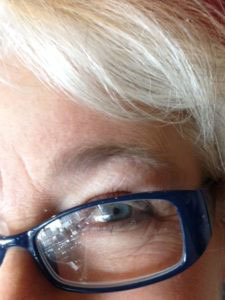I love looking back on all the marketing and PR writing bosses I’ve had — from employers who took a chance on me when I was green to what seems like hundreds of freelance writing and editing clients in a dazzling spectrum of industries. I haven’t always felt my writing career had cohesion to it. It just seemed like a jumbled up mess of ups and downs — like pretty much anything in life.

Then recently, in my mind it has somehow all come together in a picture, or a story with a beginning, middle and a weird kind of scene ending. I’ve been trying to figure out why this is happening now, and I finally figured it out. It seems like all of a sudden, I’m a senior senior-writer!
Being an older writer means I’ve lived long enough through the rainbow of challenges all writers face that I can draw on my body of work to solve practically any problem my current writing and editing clients face. I don’t know everything, but I know a lot.
I suppose I should feel bad about getting old. America is a land of old-age-denial. But I keep thinking about something else: confidence and the joy of my work. It’s a shiny thing that mesmerizes me when I’m focused on it. I didn’t have it when I was younger, and now suddenly I feel it every day. That’s the upside of being a senior writer.
It has stunned me to have younger colleagues asking me for advice. They would like my help to learn how to writer better, cope with client demands, and organize the daily work of producing content (it’s not always easy).
Most often they want advice about constructing writing pieces, such as blogs and press releases. It’s the hardest thing about writing – other than what I would call “soul”. You can teach grammar and structure, but it’s hard to teach that elusive emotional quality that creates heart-deep connections with your readers – even in marketing materials. Especially in marketing materials.
I’m finally to the point in my career that I truly feel I have something to offer. It has created a feeling of freedom and ease in some ways. And in others, it has created a feeling of heightened responsibility. One of the things I feel responsible for is reaching out to other “senior” writers.
Some of us feel as though we are becoming obsolete, and that can truly happen if you don’t keep up with new technology and the world’s new ways of communicating. Most of us feel tired at least part of the time, and one of our new challenges as older writers is finding the energy to do as much as we used to.
The fact is, we probably can’t do as much as we used to. But we’re likely to be faster at what we do than we were. And the result is likely to be better. Many writers in their 50s and 60s find themselves at the peak of their game – young enough still to be kicking and experienced enough to really make a mark.
The experience we bring to the table isn’t obtainable by any other method than getting older (and doing the work). The depth of my writing is a quality that’s worth dollars to clients who need a subtle edge of language. And I am thrilled to be of use to them in this way.
I suppose that’s the message I want to convey to my older-writer colleagues: stop thinking those inevitable thoughts about approaching the end. Instead, think about ways you can use this newfound confidence and joy in your work for good, whatever that means to you. Rest when you need it and can. But when you’re at the desk with your fingers on the keys, go whole hog. Put your all into it – every lesson you’ve learned and nuance you’ve earned – and make your mark.

